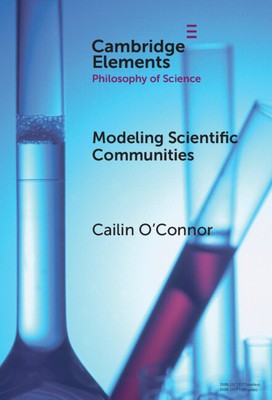
- We will send in 10–14 business days.
- Author: Cailin O'Connor
- Publisher: Cambridge University Press
- ISBN-10: 1009454080
- ISBN-13: 9781009454087
- Format: 15.2 x 22.9 x 0.6 cm, kieti viršeliai
- Language: English
- SAVE -10% with code: EXTRA
Reviews
Description
This Element will overview research using models to understand scientific practice. Models are useful for reasoning about groups and processes that are complicated and distributed across time and space, i.e., those that are difficult to study using empirical methods alone. Science fits this picture. For this reason, it is no surprise that researchers have turned to models over the last few decades to study various features of science. The different sections of the element are mostly organized around different modeling approaches. The models described in this element sometimes yield take-aways that are straightforward, and at other times more nuanced. The Element ultimately argues that while these models are epistemically useful, the best way to employ most of them to understand and improve science is in combination with empirical methods and other sorts of theorizing.
EXTRA 10 % discount with code: EXTRA
The promotion ends in 23d.06:59:45
The discount code is valid when purchasing from 10 €. Discounts do not stack.
- Author: Cailin O'Connor
- Publisher: Cambridge University Press
- ISBN-10: 1009454080
- ISBN-13: 9781009454087
- Format: 15.2 x 22.9 x 0.6 cm, kieti viršeliai
- Language: English English
This Element will overview research using models to understand scientific practice. Models are useful for reasoning about groups and processes that are complicated and distributed across time and space, i.e., those that are difficult to study using empirical methods alone. Science fits this picture. For this reason, it is no surprise that researchers have turned to models over the last few decades to study various features of science. The different sections of the element are mostly organized around different modeling approaches. The models described in this element sometimes yield take-aways that are straightforward, and at other times more nuanced. The Element ultimately argues that while these models are epistemically useful, the best way to employ most of them to understand and improve science is in combination with empirical methods and other sorts of theorizing.


Reviews